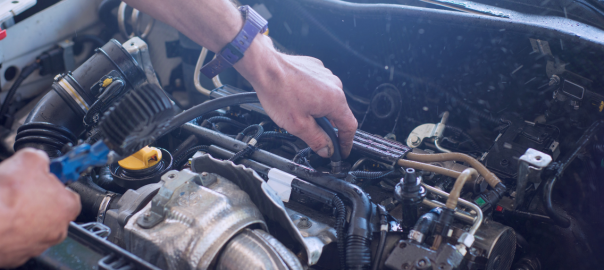In the world of heavy truck repair, mastering reefer technology is a skill that can make or break your business. Reefer units, essential for transporting temperature-sensitive cargo, require specialized knowledge and expertise to keep them running smoothly. If you’re in the truck repair industry in Houston or anywhere else, understanding the ins and outs of reefer technology is vital.
In this comprehensive guide, we’ll delve into the world of heavy truck repair, focusing on the intricate art of reefer system maintenance and repairs. Whether you’re a seasoned mechanic looking to refine your skills or a novice looking to enter the field, this blog will equip you with the knowledge you need to excel in the world of truck repair in Houston.
Understanding Reefer Technology: The Basics
Before we dive into the nitty-gritty of reefer system repairs, let’s start with the basics. Reefer units, short for refrigerated units, are essential for transporting perishable goods at precise temperatures. These units combine the elements of a refrigeration system and a heating system to maintain a consistent temperature inside the trailer. Whether you’re dealing with fruits, vegetables, or pharmaceuticals, knowing how to maintain the temperature is paramount.
Common Reefer Unit Issues
Effective heavy truck repair requires a deep understanding of common reefer unit issues. From compressor failures to electrical glitches, being able to diagnose and address these problems swiftly is key. Here’s a breakdown of some common issues:
(i). Compressor Failures:
The heart of any reefer unit is the compressor. Understanding its function and troubleshooting it is crucial. A failing compressor can lead to temperature deviations, potentially ruining valuable cargo.
(ii). Electrical Problems:
Reefer units are laden with electrical components. Mastering diagnostics and repairs of these systems is essential. Faulty wiring or sensors can lead to irregular temperature control.
(iii). Refrigerant Leaks:
Identifying and fixing refrigerant leaks is essential for maintaining the efficiency of the unit. Leaks not only compromise cargo but can also harm the environment.
(iv). Temperature Fluctuations:
Even minor temperature fluctuations can result in cargo spoilage. Being able to calibrate the unit to maintain a consistent temperature is a skill every heavy truck repair expert should possess.
Effective Repairs for Reefer Systems
Now that you’re familiar with common reefer unit issues, let’s discuss effective repair strategies:
(i). Regular Maintenance:
The best way to prevent issues is through regular maintenance. This entails the cleaning of coils, verification of refrigerant levels, and a thorough examination of electrical connections. Don’t overlook the basics.
(ii). Comprehensive Diagnostics:
When a problem arises, a systematic approach to diagnostics is crucial. Use advanced tools and your knowledge to pinpoint the issue accurately.
(iii). Prompt Repairs:
Once you’ve diagnosed the problem, act swiftly. A timely repair can prevent further damage and costly downtime for the truck.
(iv). Quality Parts:
When replacing components, always opt for high-quality parts. Cutting corners here can lead to recurring issues.
In conclusion, mastering reefer technology is not just about repairing units; it’s about safeguarding valuable cargo and ensuring the smooth flow of goods. Whether you’re already a part of the heavy truck repair industry or aspire to be, honing your skills in reefer technology can open doors to a successful career in truck repair in Houston. Remember, expertise matters in this field, and it’s the key to providing reliable and effective solutions to your clients.
